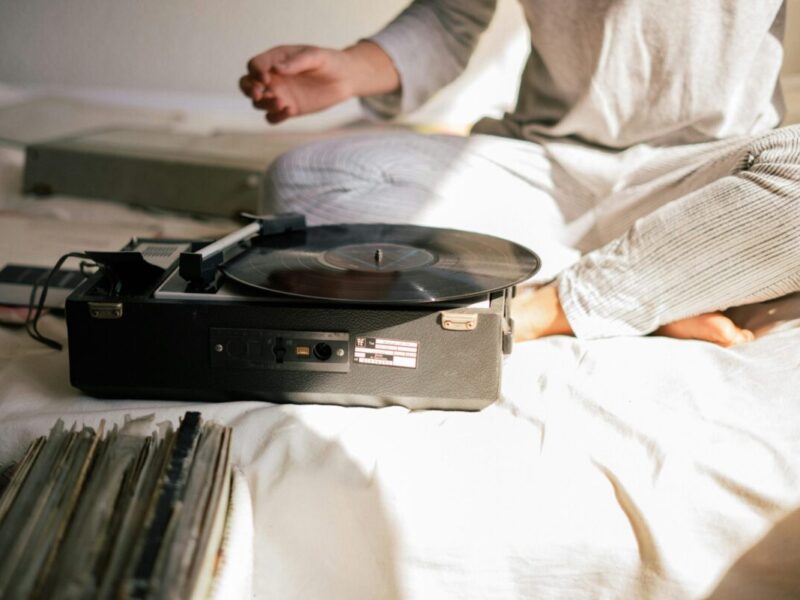How To Be Confident Reading Your Poetry in Public
Reading your poetry in public takes courage and vulnerability. You are putting yourself and your work in the limelight in front of strangers, and if the audience is large, there is more pressure to perform well. Confidence naturally arises when you believe in your work, so you can do well no matter the audience. But for poets who have anxiety disorders, it doesn’t matter how much they believe in their work; they still get nervous. Even poets with decades of experience reading in public still get performance anxiety.
So how do we muster confidence in the midst of fear? Below are strategies that address the psychological mindset you need to have to perform well under pressure. These tips also offer practical steps you can take to feel confident no matter what happens the day of your reading.
PRACTICE READING YOUR WORK OUT LOUD
The advice to practice reading your poetry out loud may seem obvious, and that’s because it’s the most crucial and important way to feel confident during your reading. Any class on public speaking will give you exercises that focus on reading your work out loud: You can read in front of a mirror; You can record yourself and then watch it afterwards; You can even memorize your entire reading, and then practice reading it in front of family members and friends. The more you practice reading your work out loud, the more comfortable you will feel because the poems will become ingrained in your brain and in your soul. In his book, Outliers, Malcolm Gladwell wrote that The Beatles’ success is due, in part, to spending thousands of hours performing during their tours.
A fun way of practicing reading in public that doesn’t involve the commitment or the responsibility of a planned reading is to try a spontaneous Instagram Live reading. Because you can save your Instagram Live readings, you can listen and learn from your performance afterwards. While you can definitely record your poetry and upload an edited video, you won’t experience the same challenge as reading before strangers or an audience that’s there with you in real time. If you want the added responsibility that comes with a planned event, make a flyer and promote the reading using Instagram Stories a week before the event to give yourself the same experience of an in-person reading. You can even invite other poets to join you.
Once it’s safe to hold large gatherings again, you can begin or continue to perform at small venues. It’s always important to start with small events and readings because they will make you feel less pressure. Speak to the manager or owner at your local restaurant or pub, and offer to host weekly or monthly poetry readings. You can also join open mic readings at your local bookstore. Open mics are great because you can always choose not to perform, and you are surrounded by people who are learning how to perform their work out loud, so you’re all learning together.
SEEK INSPIRATION FROM OTHER POETS
Rupi Kaur and Nikita Gill are two poets who are great at reading poetry. They are passionate, assertive, and confident when reading their work, and they connect with their audience. And if they seem nervous, such as Nikita in this Ted Talk or Rupi on The Tonight Show, they still manage to transform this energy into excitement. Both Nikita and Rupi speak eloquently whether they are being interviewed or speaking in front of hundreds of people. They are naturally good at performing poetry, so we can definitely learn from them.
One word of warning while watching professional public speakers: Do not compare yourself to them. These are poets who do international book tours and have years of experience reading their work out loud, including performing on live talk shows. Their readings are there to inspire you, not to make you feel inadequate at performing, so remember to seek inspiration and not comparison.
PRACTICE MEDITATION
For some poets, the anticipatory anxiety that leads up to a reading is the hardest part. Once you get them on the stage, they are fine, but it’s the buildup and worry that accumulates over weeks—and sometimes even months—that affects them. Many people describe this problem as performance anxiety, and it’s really common for people who struggle with anxiety disorders. Without wanting to, their minds linger obsessively in the unknown future because there is so much that’s not in their control the day of the reading, such as whether they will get into a car accident and miss their event or whether they will get sick days before the event. The best way to deal with anticipatory anxiety is to continuously bring yourself back to the present moment. Whenever your mind dwells in worry, notice it, and then let go of the worry. If you practice meditation or yoga, it will become easier to train your mind to be more present.
Practicing meditation before your reading will also help you deal with distractions from audience members. Sometimes when you’re reading, it’s hard to ignore the people addicted to their Smartphones or the people who start chatting with friends while you’re reading beautiful lines of poetry. The trick is to remember that you can’t control what they’re doing. What you do have control over is your mind and your attitude. The best poetry readers are so in love with their work that they become enraptured with their performance. They are so present and natural in the spotlight because they are not concerned with what others think of them. They love their poetry and want to share it with the world.
I hope these strategies help you become a better performer of poetry. Remember that everything is a process, and you don’t have to become a great performer overnight. The most important thing is to start reading your work, even if it’s on Instagram. With time and practice, you’ll become confident and learn to enjoy the experience of reading your beautiful poetry, no matter the venue or the audience size.




